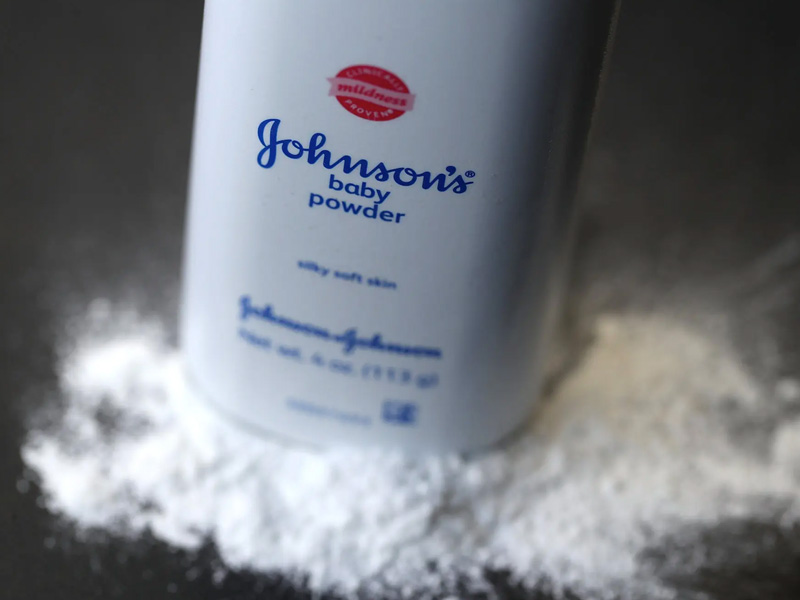A new judge will oversee the tens of thousands of lawsuits Johnson & Johnson faces over allegations that the company’s talcum powder products contain asbestos and cause cancer. The new judge assignment was announced in February 2023, just two weeks after an appeals court rejected an attempt by J&J to use the U.S. bankruptcy process to resolve the multibillion-dollar litigation. If you used Johnson & Johnson’s talc-based Baby Powder or Shower-to-Shower body powder and you have been diagnosed with ovarian cancer, mesothelioma, or another type of cancer, call our consumer advocates at Leading Justice for help. We can put you in touch with a knowledgeable talcum powder cancer attorney who can help you determine whether you may be eligible to file a claim for compensation.
Talcum Powder Lawsuits Claim Product Causes Cancer
The federal talcum powder cancer litigation has been centralized in the U.S. District Court for the District of New Jersey, and according to an order filed last month, U.S. District Judge Michael Shipp will take over the long-running litigation from former Chief District Judge Freda Wolfson, who retired from the court on February 1, 2023. There are currently more than 38,000 talcum powder lawsuits pending against J&J in the federal court system, and the cases have been on hold since October 2021, when J&J created a new subsidiary called LTL Management to hold its talc liabilities, and then had the subsidiary immediately file for Chapter 11 bankruptcy. Prior to the bankruptcy filing, J&J had been hit with billions of dollars in verdicts and settlements stemming from the massive talcum powder litigation.
Despite tens of thousands of claims alleging that J&J knew about the risk of talcum powder causing ovarian cancer or mesothelioma, the company maintains that its talcum powder products are safe and do not cause cancer. However, J&J did announce in 2020 that it would halt sales of its talc-based powders in the U.S. and Canada, and would replace the ingredient with cornstarch. An investigative report published by Reuters in 2018 stated that J&J knew for decades that its talcum powder products sometimes tested positive for small amounts of asbestos, a known carcinogen, and did nothing to warn consumers about the potential risk of cancer. According to the Reuters report, J&J told the FDA in 1976 that there was no asbestos “detected in any sample” of its talc produced from December 1972 through October 1973, when in reality at least three tests conducted by three different labs between 1972 and 1975 had identified asbestos in its talc, in one case at levels considered “rather high.”
Talcum Powder May Contain Traces of Asbestos
People first began using Johnson & Johnson’s talc-based Baby Powder for cosmetic purposes in the early 1900’s, when the manufacturer began marketing it to women and children. For more than a century, J&J promoted its talcum powder as a safe, wholesome product that was pure and gentle enough for babies. Now, tens of thousands of former talcum powder users claim that their lifelong use of Johnson & Johnson’s talcum powder is what caused their cancer diagnoses. Because talc occurs in close proximity to asbestos in the earth, talc deposits mined for use in talcum powder products can easily be contaminated with asbestos. Unfortunately, while internal company memos and reports uncovered throughout the talcum powder litigation indicate that J&J had known for at least 50 years that its talc was sometimes tainted with asbestos, consumers were never warned.
Find Out How We Can Help
Even as it announced the decision to wind down sales of its iconic talc-based Baby Powder, J&J disputed claims that talcum powder causes cancer, stating that it “will continue to vigorously defend the product” in court. Regarding the decision by the U.S. 3rd Circuit Court of Appeals in Philadelphia to dismiss its bankruptcy filing, J&J has said that it will challenge the ruling, which it claims was initiated in good faith. “Good intentions – such as to protect the J&J brand or comprehensively resolve litigation – do not suffice alone,” the appeals court stated in a 56-page opinion. “LTL, at the time of its filing, was highly solvent with access to cash to meet comfortably its liabilities.” If you believe you may be entitled to financial compensation for your alleged talc-related injuries, do not hesitate to get legal help. Call Leading Justice today to learn the best way to proceed with your potential claim.




